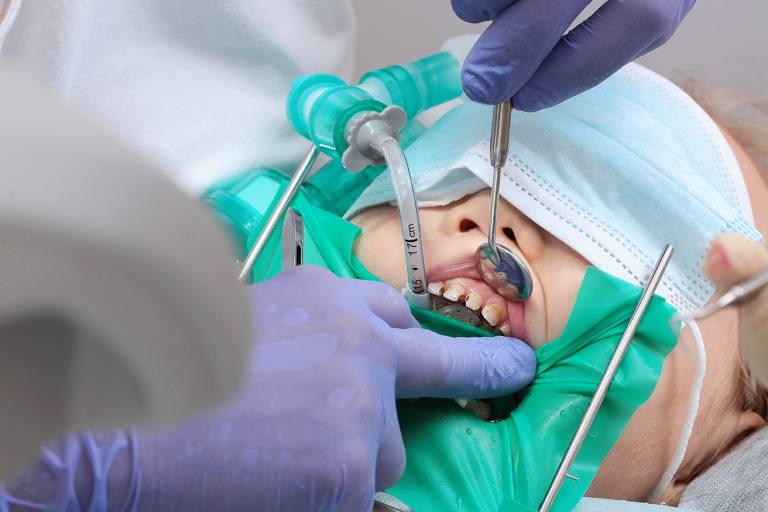Examining the provision of dental general anaesthetic for children in England
2 August 2022
A new study, led by researchers from the UCL Eastman Dental Institute, has highlighted the need to improve how paediatric dental general anaesthetic (DGA) is recorded and commissioned to improve children’s access to dental care.

Published in the British Dental Journal, results highlighted inaccuracies in the hospital admissions database, variation in service provision across England and the lack of paediatric specialty-led dental general anaesthetic services.
Dental general anesthetic (DGA) is the main reason for a child to be admitted to hospital – most commonly for dental decay. However, it remains unclear how many children are treated this way, which specialty plans and delivers their treatment, and whether access to DGA is equitably available throughout England.
A dental database
Currently, the main central registry system which is used as an indicator of DGA provision is the Hospital Episode Statistics (HES) data on hospital admission of children for dental extractions. However, “activity is not well captured,” said Dr Nabih Alkhouri, Academic Clinical Fellow at UCL Eastman and first author of the study, as the database often omits non-hospital-based providers, and the data includes treatment under sedation.
To get a clearer understanding of paediatric DGA services across England, Dr Alkhouri and colleagues identified and contacted all potential providers (NHS Trusts or Community Dental Services – CDS's) and asked them to supply data about their services. The majority of those contacted provided information – response rate was 82% and 115 providers confirmed provision of paediatric DGA.
Regional disparity
The research team saw that the HES database falls well short of providing an accurate and comprehensive picture of the provision of DGA for children across England and that access to paediatric specialty-led DGA is variable, with children in certain regions being disadvantaged.
“While the Paediatric Dentistry commissioning standards clearly state the importance of equality across NHS regions, children still have limited access to paediatric specialty-led services. Access to high quality treatment remains a postcode lottery in many regions,” said Dr Alkhouri.
Further information
- Research paper: Variations in provision of dental general anaesthetic for children in England. British Dental Journal
- Prof Paul Ashley academic profile
- Dr Nabih Alkhouri - British Society of Paediatric Dentisry (YouTube)
 Close
Close

